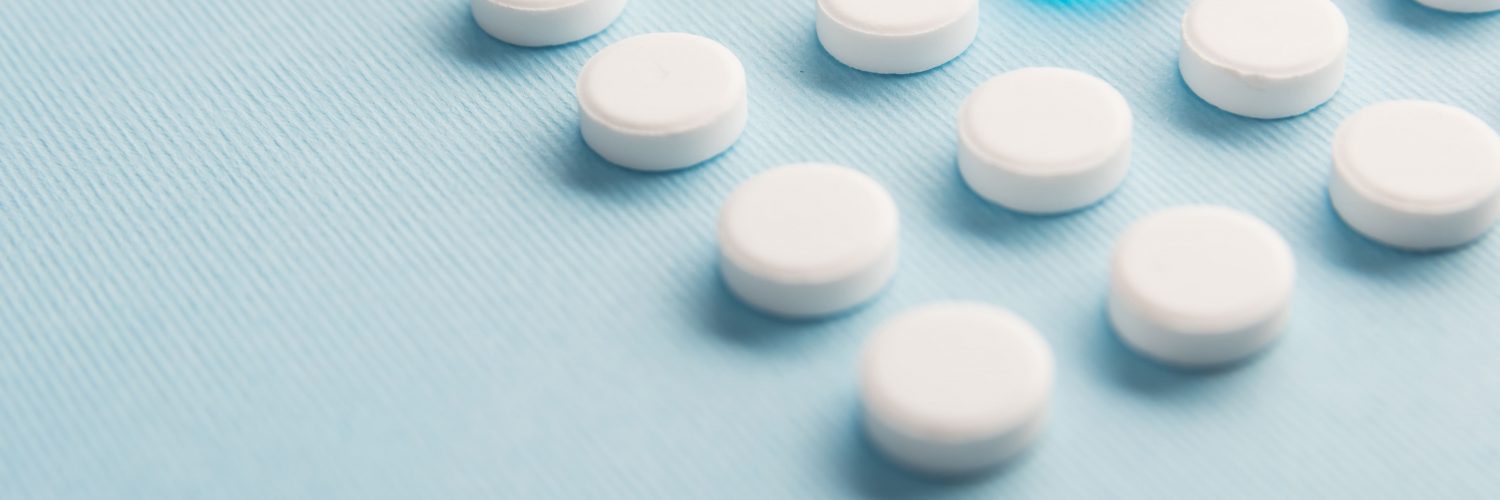“…You shall not cook a kid in its mother’s milk” (Torah Reading for Shabbos Chol haMoed – Shemos 34:26)
Lactose, sometimes known as “milk sugar”, is widely used in the pharmaceutical industry. This essay will discuss related Halachic issues, particularly, whether it constitutes Chalav Aku”m and whether it is considered milk with regard to Basar b’Chalav.
In order to properly analyze the Halachic issues, we will begin with a review of industrial manufacturing techniques.
Lactose is derived from whey in cow’s milk, a byproduct of cheesemaking. After separating the curds from the whey, the curds are heated in order to release more whey. The whey then undergoes further processing to isolate and extract the lactose for industrial and pharmaceutical use.
In the pharmaceutical industry, lactose is often used as a filler in tablets or capsules. Many medications contain a high percentage of lactose, and sometimes it may even constitute the majority of the medication.
Chalav Aku”m
Chaza”l forbade Chalav Aku”m due to the concern that a non-Jew would switch the milk of a Kosher animal with that of a non-Kosher animal (Avoda Zara 35b). The Pri Chadash and Chasam Sofer (see Pischei Teshuva 115:3) famously disagreed as to whether this Issur applies in cases where it is reasonable to assume that the non-Jew did not substitute non-Kosher milk. Rav Moshe Feinstein zt”l (Igros Moshe 1:47) held that Chalav Aku”m is permitted when there is strict government oversight, including criminal penalties for misrepresenting the milk of other animals as cows’ milk. He therefore permitted milk labelled as cows’ milk. Rav Moshe also contended that “certain knowledge” of this fact is equivalent to actually witnessing it. Further elaboration of this point is beyond the scope of this essay. Dairy
In most cases, lactose is less of a concern as it is produced from whey. According to the Rema (Y.D. 115:2), milk that is set aside for the production of cheese has no concern of Chalav Aku”m (at least Bedieved) as milk from non-Kosher animals cannot produce cheese. If so, lactose should also be permitted Bedieved, or when no other options are available.[1]
Another reason to be lenient is that the Darchei Teshuva (ibid. 1), quoting the Knesses haGedola, rules that whey is not considered milk with regard to Chalav Aku”m.
Additionally, when lactose is used in medications, it is mixed with other ingredients which make it inedible even to a dog (“Nifsal meiAchilas Kelev”). The Issur of Chalav Aku”m certainly doesn’t apply to inedible substances.
Rav Elyashiv zt”l (Kovetz Teshuvos 1:73) ruled that these arguments also preclude the potential for the Issur of Basar b’Chalav. Though the Shach (Y.D. 87:17) rules that whey that falls into a meat dish renders it forbidden, he only forbids it to be eaten together with meat due to Maris Ayin. Eating it after meat is “likely permitted”.
The Acharonim discuss whether lactose should be forbidden for another reason. During its production, as described above, the cheese is heated up to separate the whey, during which the whey absorbs taste from the cheese. The whey should therefore adopt the status of cheese of a non-Jew (“Gevinas Aku”m”), which is not subject to any of the leniencies of Chalav Aku”m invoked above.[2]
Others counter that during the process, the whey does not absorb taste from the cheese. Some say that since the cooking process takes place before it reaches Jewish hands, the taste absorbed from the cheese is “Ta’am d’Heteira” – a permissible taste.
Regardless, the whey does not absorb flavor from the cheese if it is not heated to Yad Soledes Bo.
Several Poskim, including Rav Moshe Feinstein zt”l and Rav Elyashiv zt”l, were lenient in this regard. See also Shevet haLevi 2:86.[3]
Basar b’Chalav
If a person ate meat, may he then take a medication that contains lactose?
If the medication is bitter-tasting and inedible, it is not considered an “Ochel” (foodstuff) and may be eaten together with meat (though it is better to refrain from eating it at the same time and to take the medication after the conclusion of the meat meal instead). However, many medications are not inedible.
As described above, lactose is produced from whey after it is completely separated from cheese. The Poskim distinguish between the byproducts of cheesemaking – Nisyubei d’Chalba and Mei Chalav. The Shulchan Aruch rules (Y.D. 87:8):
Some say that Nisyubei d’Chalba [milk that is produced when the cheese is set] is not considered “Mei Chalav” and is Asur Min haTorah. Mei Chalav is only produced when the Nisyubei is cooked after the cheese is produced and the solids float to the top, leaving just a watery substance below. This is considered “Mei Chalav”.
The Mechaber is clarifying his ruling in Se’if 6 that cooking meat in “Mei Chalav” is only an Issur d’Rabbanan. Then, in Se’if 8, he defines what Mei Chalav is. He explains that the substance that first separates from the cheese is still considered Chalav and is Asur Min haTorah. Only when that substance is cooked and the solids cheese element separated from it, is the remaining liquid considered “Mei Chalav”, which is only an Issur d’Rabbanan.
Rav Shmuel Wosner zt”l rules (Shevet haLevi 7:118):
Regarding lactose, of which a small amount is mixed into many medications: Is it forbidden to take the medications together with meat?
We have heard from a truly God-fearing expert, that lactose is produced from Nisyubei d’Chalba. The water is evaporated leaving “milk sugar”. In my opinion, it would seem logical that it is no longer considered milk, at least Min haTorah. It is incomparable to milk powder, the production of which retains the essence of the milk, just in dry form, and which, upon mixing with water, reverts to being actual milk. Here, only the sugar elements of the milk (the “Nisyubei”) remain. Moreover, even with regard to Nisyubei there are two opinions cited in Shulchan Aruch (Y.D. 87) as to whether it is considered milk Min haTorah, though we are generally stringent and only consider the liquid that separates from Mei Chalav not to be Chalav, not the Mei Chalav itself, as clear from the Poskim in Y.D. 87 and 81.
Nevertheless, with regard to Basar b’Chalav, given that there is only a small quantity [of lactose] in the pills, and there are many who hold ([see] Y.D. 89) that a cooked cheese item is less of an issue than cheese itself, at least as far as eating it immediately after meat, one may take the medication, at least after a meat meal, and one certainly need not wait, as the Rema (89:1) permits [Chalav] immediately after Birchas haMazon me’Ikar haDin (essentially).
The basic Halacha appears to be that a small element of lactose is not an issue, at least for a Choleh sheEin Bo Sakana. See the Da’as Torah Y.D. 87:25 who attests to the fact that there were those who were stringent not to eat sugar produced from sugar cane together with meat, because the workers would prepare it by immersing it in goats’ milk. However, the Arizal would eat them together with meat.
Rav Wosner offers several lines of reasoning. He states that, according to the view cited in Shulchan Aruch that it is forbidden Min haTorah to cook Nisyubei d’Chalba with meat, it would be similarly forbidden to ingest lactose together with meat.
The way Rav Wosner describes the production of lactose, does indeed fit the Shulchan Aruch’s definition of Nisyubei d’Chalba. However, according to our understanding of the production of lactose (at the start of the essay), there is a difference. Lactose is produced in two stages, and derives from the liquid (“water”) that remains after all elements of cheese have been removed. This would seem to fit the Shulchan Aruch’s definition of “Mei Chalav”, which is only an Issur d’Rabbanan rather than “Nisyubei d’Chalba”, and should therefore be permitted to a Choleh sheEin Bo Sakana.
Regardless, Rav Wosner himself permitted it because only a small amount is contained in the medications. If so, each medication needs to be checked as to the amount of lactose it contains. Furthermore, his ruling relied on the Rema’s ruling that, me’Ikar haDin, one may ingest Chalav immediately after Birchas haMazon at a meat meal. As such, it would be better to wait an hour and clean one’s mouth and teeth rather than relying on the Ikar haDin.
[1] The Shach (ibid. 22) rules that one many only be lenient in cases of significant loss, but the Pri Chadash (ibid. 20) permits it more broadly. However, it is likely that when those performing the milking do not produce the cheese, this leniency does not apply.
[2] This is because Chaza”l forbade Gevinas Aku”m due to the concern that the non-Jew set it in the stomach of a Nevela.
[3] See also Alim liTerufa p118 who quotes additional Poskim in this regard.














